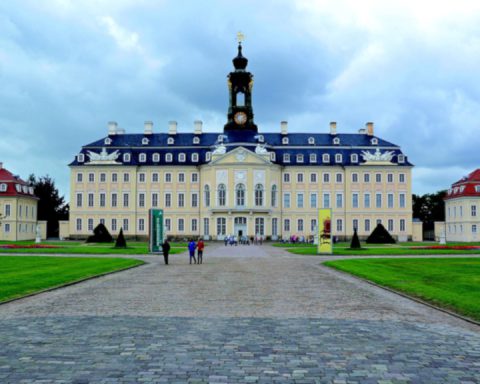
Nationalism is always divisive. Like all ideologies that foment a strong “us vs. them” relationship, nationalism polarizes people. The title of this article is an oxymoron on purpose, to call attention to a very old strategy that is becoming a worrisome trend: The use of nationalism as the ideological backbone of a populist strategy where the leaders use politics not as the means, but as the end itself.
Populist leaders put politics before any other consideration (like economic or social issues) because their aim is to stay in power and enjoy the spoils of power. To that end, the recurring populist strategy is social polarization: We are good; they are bad. One sees that in Saxony the Pegida/Legida movement claiming that “we” (white Christians – “Wir sind das Volk”) are legitimate Germans, and not “they” (Muslims and other non-German-looking immigrants or refugees). In America, the populist trend has followed a similar logic with the popularity of Donald Dumpf (no, it’s not Donald Trump, it’s Donald Dumpf). Closer to home, and more worrying than Pegida, is the rise of the PEKOs (Russian President Vladimir Putin, Turkish President Recep Tayyep Erdoğan, Polish politician Jarosław Kaczyński, and Hungarian Prime Minister Viktor Orbán.). Two of these leaders are heads of government in EU states; it would be disastrous for the future of the European Union if the rise of such type of populism became a trend.
Although the fears arising from the emergence of divisive nationalism are well placed, I think that we should not look at it as the devolution of democracy, but as a negative reaction to the positive aspects of the globalization of the democratic welfare state (when a representative government protects collective socioeconomic well-being). Globalization is more than free trade agreements, or finding a Starbucks store everywhere. It is also the movement of people, cultural exchanges, and the standardization of norms and good practices across countries. One of those good practices is the democratic welfare state. For example, the American presidential hopeful Bernie Sanders is gaining a large following, and causing a headache to Hillary Clinton in the Democratic primaries, because of his plan to expand the American welfare state is very popular, especially among young people. However, Donald Dumpf’s plan, in economic terms, is actually not very different.
Like many right-wing conservatives, Dumpf loves the military and increasing its budget. In the United States, like in most developed countries, the military is a perfect welfare mini-state: All of its members are guaranteed a salary, clothing, education and healthcare at low or no costs. In fact, the recruitment campaign of the American military is not based on nationalism, unlike in World War I, but on the promise of a free college education. This shows that there is a general approval, even if indirect, of the welfare state. Divisive nationalism as a populist strategy arises as a reaction to global trends, such as the movement of people and cultural exchanges, which threaten the availability of resources for the maintenance of the welfare state (whether in the more relaxed American version or the more robust European variant).
I do not believe that we should see the rising trend of divisive nationalism as the return of white identity politics, based on racism as an end in itself, because it is a discourse hiding reactionary economic fears of globalization. The discourse of Pegida/Legida against the “Islamization” of Saxony, and Germany in general, shows a fear that the high influx of refugees and other migrants will strain the German welfare system, and especially the Hartz IV unemployment protection concept. Naturally, the group most worried about the strains on the welfare system is the low-income social class that depends on it. This is why the support base of Pegida, Dumpf and the PEKOs is the low-income racial majority. The racial component of the discourse is no more than a “dignified” rallying point of the aforementioned base: It is more motivating to support a candidate or movement for protecting the purity of your great nation, than admitting that you want protection from poverty since it is stigmatizing.
Radical leaders mobilize support based on a fear of foreigners or different races, because the majority of the low-income class is easily threatened by “outsiders” who appear to be straining the welfare system and taking away their entitlements. The low-income base is reacting to basic survival instincts, and certain leaders are supplying what they are demanding. Therefore, we should look beyond the discourse and see that we are not looking at the devolution of Western democracy, but a negative reaction to some of its achievements. It is those achievements that deserve our primary collective attention and efforts, not the racist discourse from the likes of Donald Dumpf or Pegida. That should help render the divisive nationalist discourse less effective, and keep the real bigots (or opportunists) out of government.









